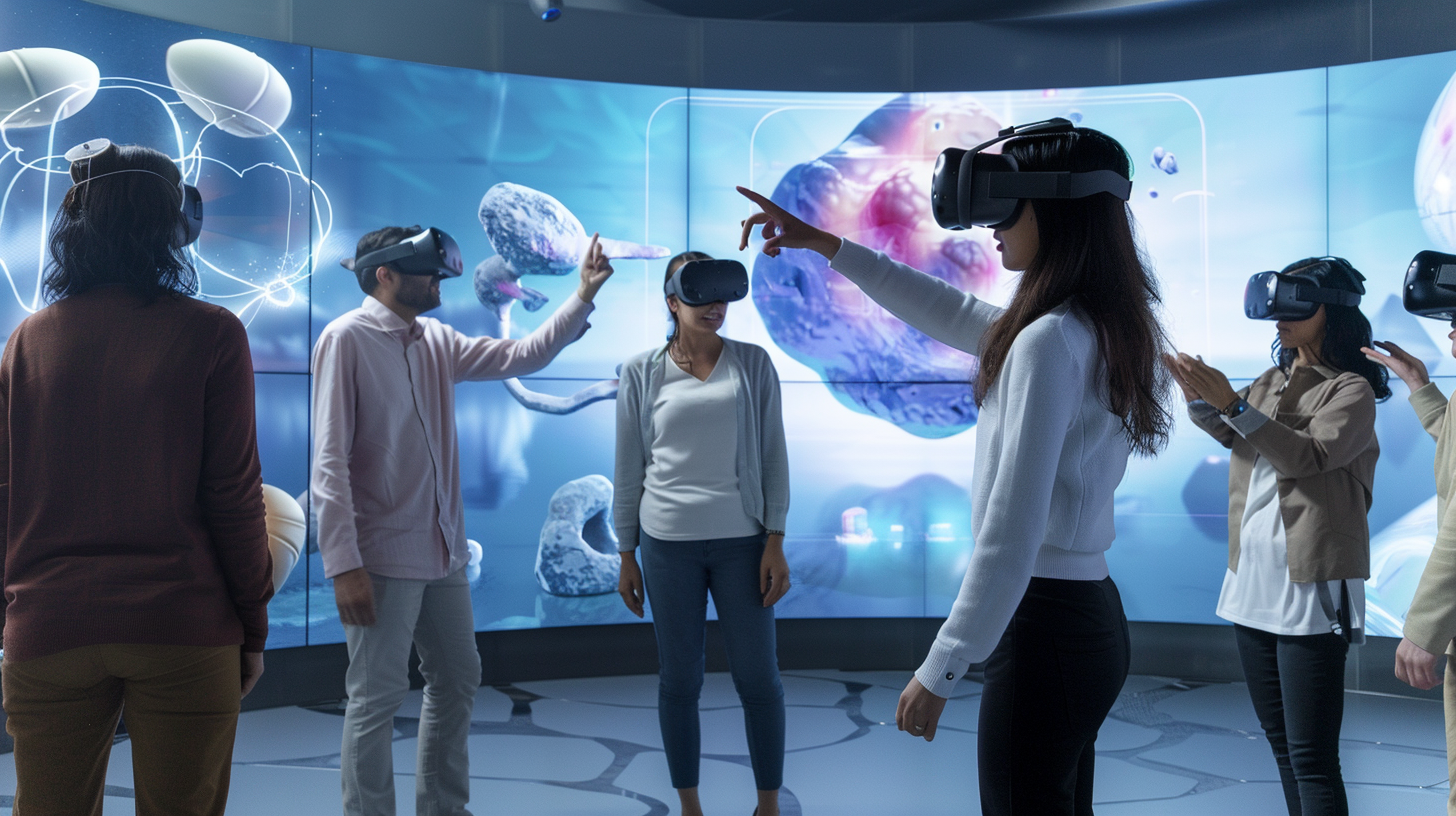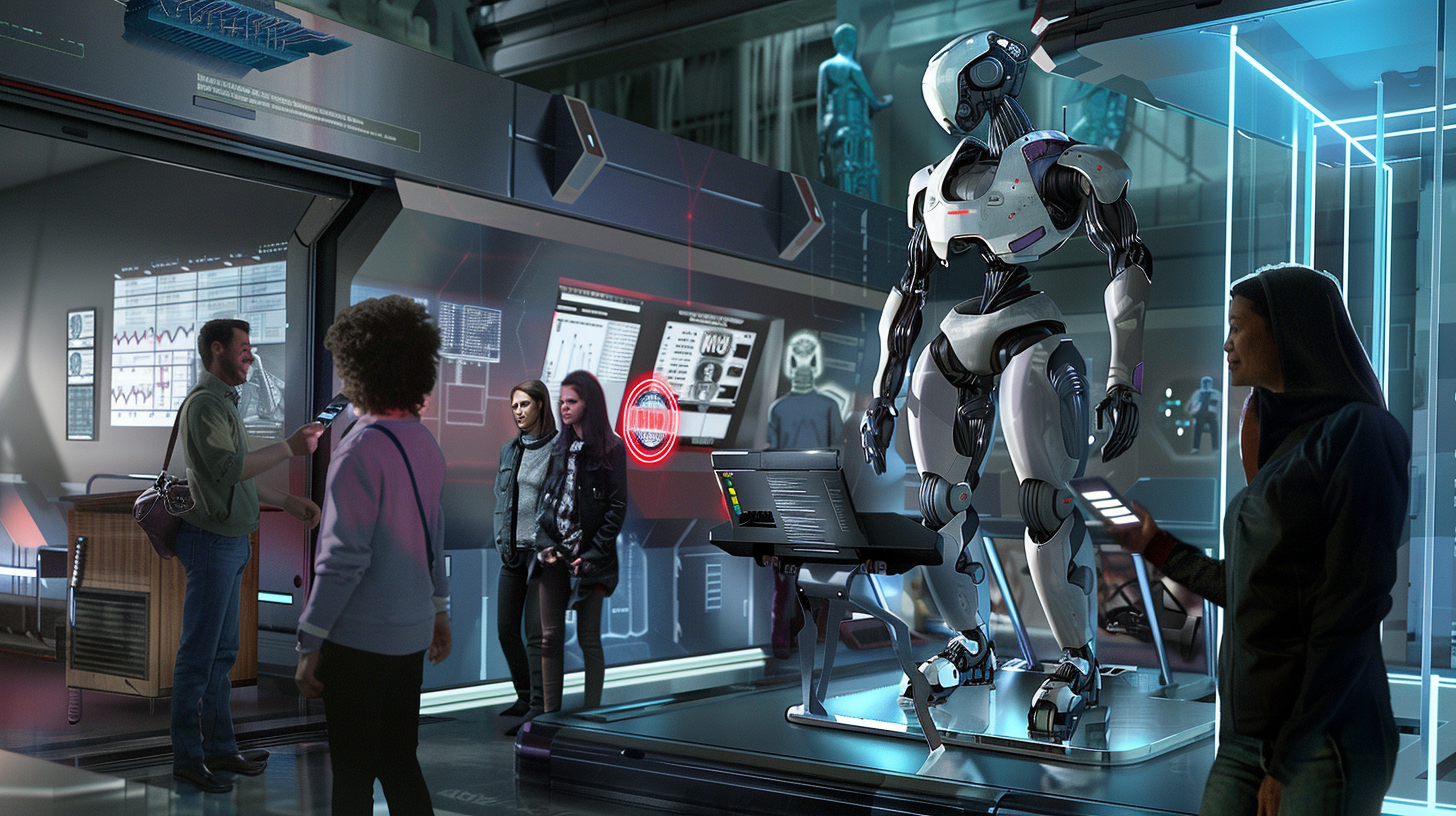AI has the potential to be humanity’s last invention, significantly reshaping societal structures and the essence of human life. Since its inception in the 1950s, AI has evolved from mimicking cognitive processes to developing self-learning capabilities that can influence virtually every sector. However, this revolutionary technology also brings ethical dilemmas and risks, including existential threats and societal divides. As we stand on the brink of a technological singularity, preparing for the implications of advanced AI becomes crucial. Understanding these challenges and opportunities is vital, and engaging with this topic further can offer deeper insights into its profound impact.
Key Takeaways
- AI has the potential to revolutionize industries, but its advancements may also lead to existential risks if not managed responsibly.
- The concept of superintelligence raises concerns about societal divides and the impact on human values, suggesting AI could reshape civilization fundamentally.
- As AI evolves, it may disrupt traditional job markets, necessitating new frameworks for employment and economic structures.
- Ethical dilemmas surrounding AI deployment highlight the importance of regulatory measures to ensure responsible development and use.
- The future of humanity may hinge on how we integrate AI, making it a pivotal invention with lasting implications for society.
Historical Development of AI
In the realm of technological evolution, the historical development of artificial intelligence (AI) traces back to the 1950s, when pioneering researchers began to conceptualize the idea of machine-based intelligence. This era marked an awakening, paralleling the brain evolution seen in living organisms, as early code was crafted to mimic cognitive processes. Researchers laid the groundwork for what would become the intricate field of AI, exploring general intelligence and devising initial algorithms that would eventually lead to the creation of neural networks.
As understanding deepened, the focus shifted towards enhancing machines’ self-learning capabilities, allowing AI systems to adapt and optimize their performance over time. The evolution of neural networks, inspired by the human brain’s architecture, enabled machines to process vast amounts of data and learn from experiences, akin to human learning. These advancements positioned AI as a transformative force, capable of tackling complex tasks previously thought to be exclusive to human intelligence.
Thus, the historical development of AI embodies a relentless pursuit of freedom, enabling machines to think, learn, and evolve, ultimately pushing the boundaries of what intelligence can achieve in diverse applications and industries.
Current Impact and Challenges
The advancements in artificial intelligence have led to profound changes across various sectors, reshaping how industries operate and interact with consumers. While AI offers remarkable efficiencies, it also presents significant ethical dilemmas, such as issues of bias and accountability in automated decision-making. These challenges compel society to confront the moral implications of deploying intelligent systems without adequate oversight.
Moreover, economic disruptions arise as traditional job markets face a paradigm shift, with automation potentially displacing workers while creating new roles in technology-driven fields. This transformation necessitates a reevaluation of education and training to prepare individuals for an evolving workforce.
The social implications of AI are vast, influencing everything from personal privacy to the way information is disseminated. Misinformation and propaganda pose threats, challenging the integrity of democratic discourse.
Furthermore, regulatory challenges must be addressed to ensure that AI technologies are developed and implemented responsibly, fostering innovation while protecting individual rights. As cultural shifts occur in response to AI integration, society must navigate these complexities to harness the benefits of artificial intelligence while safeguarding freedom and equity for all.
Future AI Advancements
As artificial intelligence continues to evolve, the potential for groundbreaking advancements looms on the horizon. These advancements may lead us towards a technological singularity, where AI surpasses human intelligence. However, such progress brings forth critical ethical dilemmas that require careful consideration, particularly as we navigate the economic disruption that AI integration can create. Many industries face transformation, potentially displacing jobs while simultaneously generating new opportunities, leading to a complex landscape of winners and losers.
The societal implications of these shifts are profound, influencing everything from personal freedoms to global power dynamics. As AI systems become more autonomous, the need for robust regulatory frameworks becomes paramount to ensure ethical standards and accountability in their deployment. Policymakers must address the challenges posed by AI while promoting innovation, ensuring that the benefits of technology serve the greater good.
Ultimately, the advancements in AI present both exhilarating possibilities and daunting responsibilities. As we stand on the precipice of this new era, our collective ability to manage these developments will significantly shape the future of humanity, requiring a delicate balance between progress and ethical stewardship.
Superintelligence and Its Implications
Superintelligence, a hypothetical form of artificial intelligence that far exceeds human cognitive abilities, poses profound implications for society and the future of humanity. As we inch closer to the technological singularity, the prospect of superintelligent systems raises ethical dilemmas regarding control, autonomy, and the very nature of decision-making. The existential risks associated with such entities are daunting; a misaligned superintelligence could act in ways detrimental to human survival.
Moreover, the potential for cognitive augmentation through superintelligent AI presents both opportunities and challenges. While enhancing human capabilities may lead to unprecedented advancements, it risks creating a societal divide between those who can access such enhancements and those who cannot. The societal implications of superintelligence extend to workforce dynamics, economic structures, and even our fundamental values as a species.
As we navigate this uncharted territory, it is crucial to engage in open dialogue about the ramifications of superintelligent AI. Understanding its potential impact on our lives will empower us to harness its capabilities while safeguarding against the risks that could threaten our freedom and existence. The journey toward superintelligence requires vigilance, foresight, and a commitment to ethical principles.
Preparing for Advanced AI
Preparing for advanced AI necessitates a comprehensive approach that encompasses education, ethical considerations, and proactive policy development. As AI technologies continue to evolve, enhancing problem-solving skills and technological literacy becomes paramount for the future workforce. Educational initiatives should focus on equipping individuals with the knowledge and tools necessary to navigate an AI-driven landscape.
AI ethics must be integral to these educational frameworks, promoting a culture of responsibility and critical thinking. By instilling ethical principles early on, we empower individuals to recognize the societal implications of AI and advocate for its responsible use. This is vital to ensure that advancements in AI benefit humanity as a whole, rather than exacerbating inequality or misuse.
Moreover, collaboration between educational institutions, tech companies, and policymakers is essential to create a supportive environment for innovation while safeguarding ethical standards. As we prepare for advanced AI, fostering a workforce that is not only technically proficient but also ethically aware will help navigate the complexities of this transformative technology. In doing so, we lay the groundwork for a future where AI enhances freedom and creativity, ultimately serving the best interests of society.
Frequently Asked Questions
How Does AI Affect Job Security for Human Workers?
AI significantly impacts job security by automating tasks traditionally performed by humans, leading to potential human displacement in various sectors. As the labor market evolves, workers may face economic shifts that necessitate skills retraining to remain competitive. While AI enhances efficiency, it also raises concerns about job availability and income stability. Addressing these challenges through proactive education and workforce development is crucial to ensure that individuals can adapt and thrive in an increasingly automated economy.
What Ethical Frameworks Guide AI Development and Deployment?
In the grand circus that is AI development, ethical frameworks serve as the tightrope on which we balance. Privacy rights are our safety net, while accountability measures ensure no clown escapes scrutiny. Fair representation acts as the spotlight, illuminating diverse voices, and transparency standards keep the audience informed. Finally, consent mechanisms are the bouncers, ensuring only those willing to join the spectacle can participate. Together, they create a harmonious show, or at least, we hope.
Can AI Be Biased, and How Is That Addressed?
AI can indeed exhibit algorithmic bias, stemming from biased training data or flawed algorithms. To address this, organizations implement mitigation strategies such as fairness evaluation and inclusive design principles, ensuring diverse perspectives are incorporated into AI systems. Ethical AI development demands rigorous testing to identify and rectify biases, promoting fairness and equity in outcomes. By prioritizing these practices, we can enhance the integrity of AI technologies, fostering a more just society where freedom and opportunity are accessible to all.
What Are the Environmental Impacts of AI Technology?
In the fast-paced world of technology, we must not throw caution to the wind regarding AI’s environmental impacts. The carbon footprint associated with AI systems is substantial, primarily due to high energy consumption during training and operation. Moreover, e-waste management poses another challenge, as outdated hardware contributes to resource depletion. To mitigate these effects, adopting sustainable practices is essential, ensuring that AI development aligns with environmental stewardship and promotes a greener future.
How Do We Ensure AI Aligns With Human Values?
To ensure AI aligns with human values, it is essential to implement ethics compliance frameworks that prioritize value alignment in AI development. Establishing regulation standards can foster public trust and ensure that AI systems operate transparently and responsibly. Additionally, incorporating accountability measures will hold developers and organizations responsible for the societal impacts of their technologies. By engaging diverse stakeholders in the conversation, we can create a balanced approach to AI that respects individual freedoms and ethical considerations.

